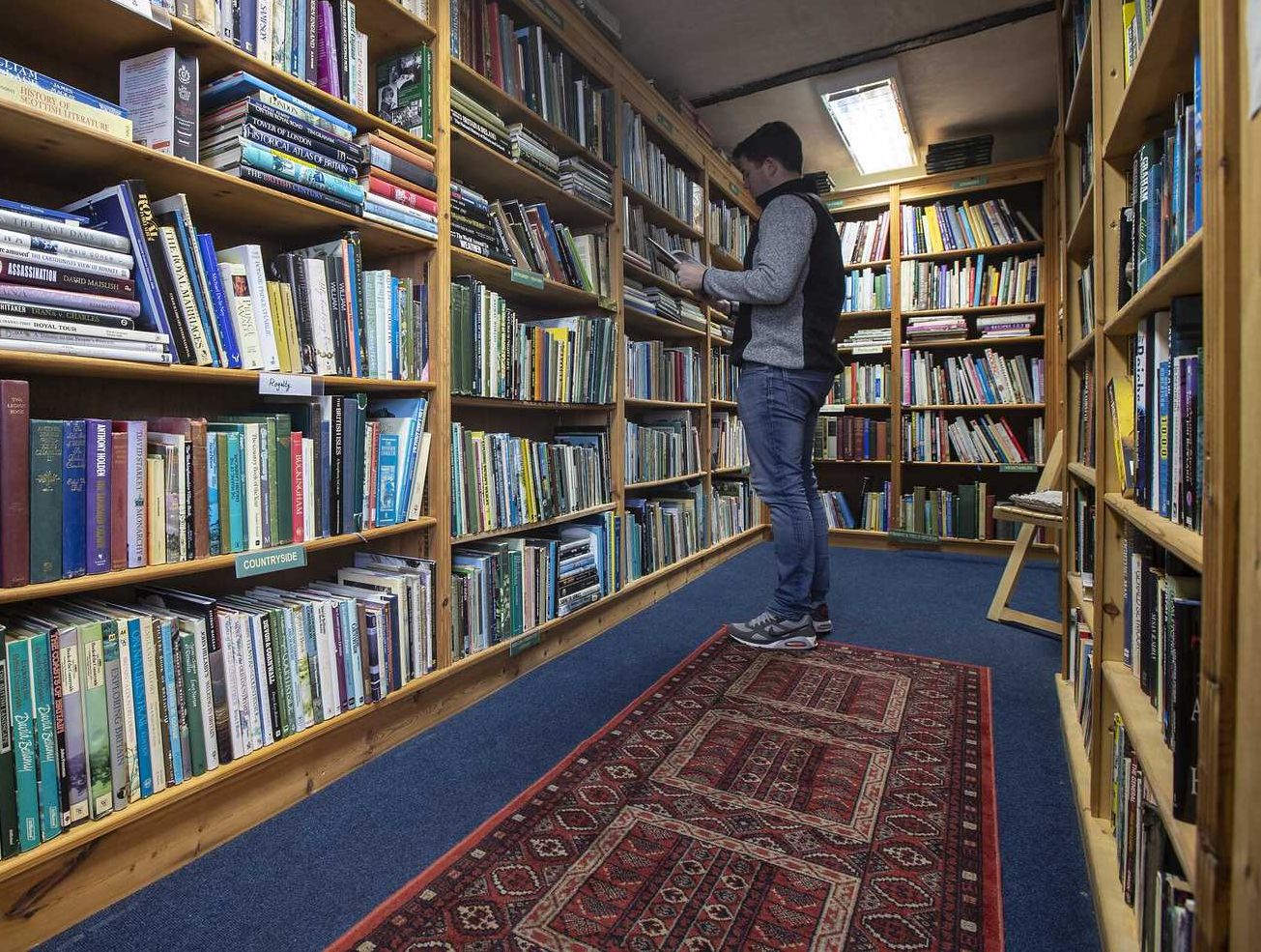Starbucks is closed Tuesday. We've got 20 alternatives owned by people of color.
We’ve rounded up some incredibly dope coffee shops from sea to shining sea.
When two black men were unjustly arrested while sitting in a Philadelphia Starbucks, Americans were rightfully outraged.
After weeks of lackluster public statements and an increasingly infuriated public, Starbucks announced it would close 8,000 of its stores for racial-bias training on May 29.
Starbucks will have to grapple with its missteps over time. But as the mega corporation begins what is hopefully a first step toward establishing a more inclusive and welcoming business, thousands of Americans still need a good flat white to kick off their day.
Want to get some good, fairly priced coffee while also supporting business owners of color? We've got you covered.
To get through the Starbucks shutdown, we've rounded up some incredibly dope coffee shops from sea to shining sea.
Here are some new places to try in each region of the continental U.S.:
West
Boon Boona Coffee, Seattle
Known for sourcing coffee from East Africa, Boon Boona Coffee works with coffee farmers across the region to develop relationships and support crop sustainability. The result? Some delectable coffee.
Red Bay Coffee, Oakland
Owned by Keba Konte, a former photojournalist and lifelong adventurer, Red Bay specifically staffs women, people of color, and individuals who have formerly been incarcerated. The coffee shop is known for its impressive role in the community and for its ability to make patrons of color feel right at home.
Photo courtesy of Red Bay Coffee.
Bison Coffeehouse, Portland, Oregon
Touted as the only Native-owned coffee shop in Portland, Bison Coffeehouse serves up "strong, medium, or light" espresso, in-house baked goods, and other yummy treats. It allows visitors to step into an older Portland while also supporting the folks who were there first.
Watts Coffee House, Los Angeles
A staple in South L.A., Watts Coffee House has coffee, brunch, and everything in between for the bustling, vibrant local community.
Midwest
Golden Thyme Coffee and Cafe, St. Paul, Minnesota
Nestled in St. Paul, Golden Thyme Coffee & Café offers a chill atmosphere and coffee-based beverages named after some of the world's most famous jazz musicians. They also sell cakes and treats to appeal to the inevitable sweet tooth.
Crazy Coffee Co., Overland Park, Kansas
Crazy Coffee Co. serves up everything one might need for their java fix. The business specializes in drip coffee and offers a variety of flavors for home coffee makers.
Rise and Grind Cafe, Milwaukee
A home for the worker bee, Rise and Grind serves up delectable food options and delicious coffee for visitors. They also offer catering for large events.
Whittier Cafe, Denver
Who doesn't love a good neighborhood cafe? Whittier is just that. With cute sweets, an outdoor patio, a cozy library, and endless coffee options, this is the perfect place to sit, read, and caffeinate before or after a busy day.
Northeast
Amalgam Comics and Coffeehouse, Philadelphia
Owned by Ariell Johnson, Amalgam Comics and Coffeehouse is a super neat space for comic nerds and coffee fanatics.
The self-proclaimed first black women to own a comic book-coffee shop hybrid in the Northeast, Johnson offers a warm smile and works with her staff to create an inclusive space for those who are comic book experts — and those who just want an excellent cup of coffee.
Busboys and Poets, Washington, D.C.
Owned by Iraqi-American immigrant Andy Shallal, Busboys and Poets is a coffee shop, restaurant, bookstore, and bar wrapped into one.
With several locations in the DMV area, Busboys and Poets staff are trained to work with diverse patrons and people of color are visible in leadership positions, kitchen, and bar staff — and everything in between. Enjoy a delicious cup of coffee while reading one of the lounge's many books by authors and scholars of color.
Photo courtesy of Busboys and Poets.
Serengeti Teas and Spices, New York City
For anyone who prefers tea over coffee, Serengeti Teas and Spices is an excellent option. Located in Harlem, this tea shop serves teas from a number of African nations. Their staff — many of whom are African immigrants — offer advice on how to choose the right tea, and the cozy environment will ensure that you feel as peaceful as possible while enjoying your drink.
Black Swan Espresso, Newark, New Jersey
Black Swan Espresso, Newark's first specialty coffee and tea shop, specializes in using international coffee beans in all their roasts. The atmosphere is pretty sweet, too.
Southwest
Tres Leches Cafe, Phoenix
Tres Leches Cafe is owned by Latinx cafe experts. In addition to coffee, the Mexican cafe offers unique treats inspired by Mexican desserts like churros, dulce de leche, and, of course, tres leches.
Kaffeine Coffee, Houston
One of the best ways to get away from the scorching Texas heat is to find a coffee shop that serves up a great iced coffee with lovely customer service. Kaffeine Coffee offers both in the city's hopping downtown area.
Piñon Coffee House, Albuquerque
Piñon Coffee House offers espresso-based drinks, nitro cold brew, and other options made with their own classic Dark Piñon coffee.
Throughgood Coffee, Houston
A hip new spot in Houston, Throughgood Coffee caters to millennials, but clearly has coffee standards rooted in the old-school methods. It's staffed largely by people of color and serves the diverse Houston community with respect and Southern hospitality.
Southeast
Dee's Coffee, New Orleans
Stationed in a bustling city of world-renowned music, food, and culture, Dee's Coffee allows people to take a step back from the wildness and enjoy a cozy, safe atmosphere. Owned and staffed by people of color, Dee's Coffee serves tea, a number of coffees, and locally made pastries.
Cafe Ulu, Atlanta
Atlanta is known for housing businesses with some of the coolest vibes around, and Cafe Ulu handily meets that standard. The cafe centers black culture and the historical influence of coffee and the coffee trade.
Beyu Caffe, Durham, North Carolina
Beyu Caffee dives into bohemian culture with gusto. In addition to some amazing coffee selections, they offer a full bar and live jazz for patrons.
The Terminal Cafe, Nashville
Perfect for those who are gluten free or health-conscious, The Terminal Cafe offers great coffee with food options like gluten-free waffles and French toast with apples. Lovely vibes are thankfully included.
And these are just a few of the options.
From city to city, state to state, and corner to corner, there are endless coffee shops owned by people of color to match just about any taste. As you explore new coffee and tea shops, support people of color and local businesses by learning, exploring, and opening up to new places.
You may just find some great cold brew along the way.









 A woman reading a book.via
A woman reading a book.via A woman tending to her garden.via
A woman tending to her garden.via

 Cats can be finicky about how they're held.
Cats can be finicky about how they're held.  Squish that cat.
Squish that cat. 

 A person browses at The Open Book in Scotland.Photo Credit: Colin Tennant, Flickr
A person browses at The Open Book in Scotland.Photo Credit: Colin Tennant, Flickr The bedroom for rent above The Open Book in Scotland.Photo Credit: Colin Tennant, Flickr
The bedroom for rent above The Open Book in Scotland.Photo Credit: Colin Tennant, Flickr